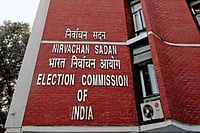Haryana Chief Minister Manohar Lal Khattar on Saturday said the state is committed to play a key role in achieving Prime Minister Narendra Modi's ambitious target of making India a USD 5 trillion economy by 2024. Khattar made the remark during the eighth meeting of the governing council of NITI Aayog held here under the chairmanship of Prime Minister Narendra Modi.
He said that just as the prime minister ensures the development of the country through the mantra of 'Sabka Saath, Sabka Vikas, Sabka Prayas, and Sabka Vishwas', the Haryana government ensures the development of Haryana following the mantra of 'Haryana Ek-Haryanvi Ek', according to a statement issued by the state government.
The chief minister said that the Haryana government has been successfully implementing central initiatives in the state for the last eight-and-a-half years and assuring the welfare of all sections by introducing new schemes. Khattar further stated that Haryana was the first state in the country to launch its ambitious Vision Document-2030 in 2017, the statement said.
“Haryana has been termed by NITI Aayog as the state that has introduced continuous reforms. Our score on the Sustainable Development Goals has risen from 57 to 67. Gender equality, hunger and anaemia elimination, quality education, economic growth, and climate change are all priorities for us,” the chief minister said. He said that through PPP, more than 44,000 elderly people and 81,000 people with disabilities got automated pension benefits.
About 75 lakh CHIRAYU health cards have been issued under the Ayushman and CHIRAYU schemes, Khattar said, adding more than 32 lakh BPL ration cards have been automatically generated for eligible families.
The chief minister stated that the Haryana government has launched a number of initiatives to realize the Prime Minister Modi's vision of water conservation. During the meeting, he also said the state government has developed an environment of 'Ease of Doing Business' that is on par with global standards in order to accelerate industrial growth in accordance with the concepts of 'minimum government, maximum governance'.


























